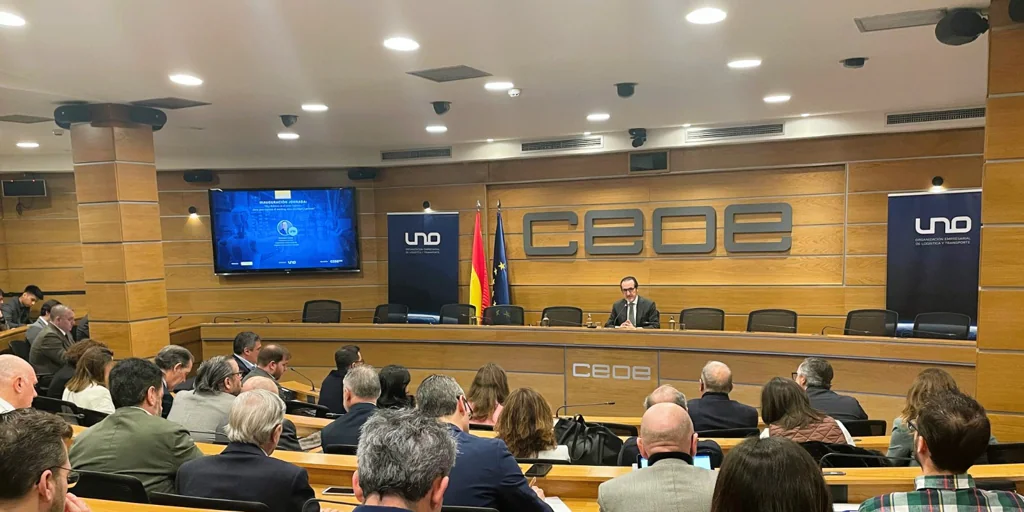The logistics and transport sector is now the third largest user of data in Spain, 23% of their companies are already working with data analytics. Francisco Aranda, President of Spain's Logistics and Transport Business Organization, UNO, announced this yesterday during a conference on 'AI and Robotics in the Logistics Industry: Keys to Improve the Fit between Technology and People'. CEOE.
In Aranda's words, “We have become a technology company that provides supply chain planning and management services, where demand forecasting is critical, and data analysis is essential to build the supply chain.” Perfect in every way. “Now that supply is no longer guaranteed, the use of big data and the use of advanced analytics techniques are essential more than ever to reduce costs, optimize resources, gain efficiency, reduce environmental impact, better manage demand forecasting and guarantee success in decision-making,” he said. emphasized.
In contrast, UNO data reveals that only 9.6% of logistics and transport companies in Spain use artificial intelligence to improve their processes, making it the ninth most active sector with this technology.
“While AI has emerged as a revolutionary tool that will allow us to be more agile in the face of changes and uncertainties in our operations, there is still much work to be done to determine its level of maturity. Real use cases to enable it to invest and create value,” said Aranda.
On the other hand, it is worth noting that 5.2% of companies in this sector have already integrated robotic systems into their operations, “automating processes to increase competitiveness, reduce costs and satisfy the changing demands of consumers,” he noted. . “These robots, increasingly versatile, have a talent similar to humans, technologies that do not replace skills, but provide advantages such as storage and sorting, counting inventory in the warehouse, reducing accidents or reducing time and costs, among others,” he added.
Another very relevant piece of information Almost 90% of logistics and transportation companies have already implemented some cyber security measures. “Leaps and bounds of advancement in the IT industry, as well as global hyper-connectivity, force us to focus on security, as our industry has become a technological operation and, therefore, more exposed to cyber attacks and threats to their security.
In response to this digitization of the sector, we can already see that 14.8% of logistics and transport companies have ICT (Information and Communication Technologies) professionals on their staff. “The reinvention of logistics in record time, heavily marked by digitization, has placed before us one of our biggest challenges: attracting and retaining human capital with high value.” “From this moment of profound change, companies' talent is relevant, which requires them to reinvent their work processes, integrate digital tools into their daily lives and seek customized solutions for their customers,” said Aranda.
The data on large companies is even more positive. In particular, 38% of them already use big data, while 13.5% use robotic systems to improve their operations, and 66.2% already have ICT experts on their staff.
“Large logistics and transportation companies have a driving effect on smaller companies that want to promote their digital transformation, but are slow to progress because they lack the same financial support.” “Additionally, they drive change by promoting technology initiatives that, over time, will be implemented across our entire manufacturing fabric,” explained Aranda.
“Looking at all these data, we can say that we are facing the 4.0 sector, in constant change, its operators using pioneering processes based on new technologies.” “Our efforts are focused on promoting a smart supply chain to improve strategic management, increase scalability and flexibility, increase sales, reduce costs, improve customer experience and guarantee the lowest possible environmental impact,” concluded UNO's president.

